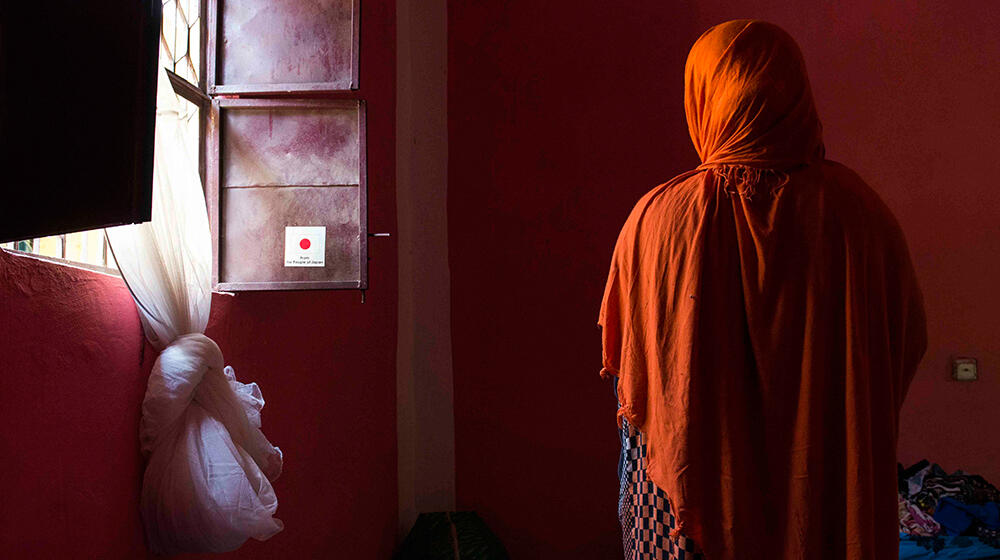When her daughter, Fatuma, turned six, Hibo, from Hargeisa, Somaliland, told her that she was now a big girl and at the right age to undergo female genital mutilation (FGM). Hibo impressed it on Fatuma that FGM makes women complete, and the young girl believed her mother.
One morning Hibo told her daughter that they would spend the day at their neighbour’s house for a chat. Fatuma was excited; she liked playing with other children in the neighbourhood. Little did she know that this was the day two cutters were invited to carry out FGM among children in the vicinity.
“The cutters had already arrived when we got to our neighbour’s house. Fatuma was immediately taken into a secluded room, and the cutters started to undress her and hold her down,” says Hibo. “When she saw the needles and the razor, Fatuma looked very scared. Three women from the neighbourhood held her legs and arms down. My daughter was loudly screaming the whole time the cutters were performing FGM on her.”
Hibo says Fatuma was in more excruciating pain soon after the procedure. “These were the worst days for my daughter and me. It was even more horrendous when she attempted to urinate. She would scream and would say that she felt a terrible stinging pain and a burning sensation,” explains Hibo sadly.
Days passed, and the cutters returned. This time they came to Hibo’s house to remove the stitches on Fatuma’s private parts. The young girl had undergone Type III of FGM. It is the most severe type, known as infibulation. This type involves the narrowing of the vaginal orifice with the creation of a seal formed by cutting and then stitching the labia minora and the labia majora with or without excision of the clitoris.
FGM is a practice that involves altering or injuring the female genitalia for non-medical reasons, and it is internationally recognized as a human rights violation. It is mainly carried out on young girls between infancy and age 15. Somali girls typically undergo this procedure between ages 7 and 10. Somali girls and women have one of the highest rates of FGM in the world. According to the latest Somali Health and Demographic Survey, 99 percent of women between the ages of 15 and 49 have been subjected to this extremely harmful and unacceptable practice.
“I had initially thought I was doing my daughter a big favour by taking her through FGM. On the contrary, I just made her miserable. She suffered a lot of pain and became very depressed,” says Hibo.
Fatuma’s mother explains that she was at pains having to watch her daughter suffer even more from the effects of FGM. “It has been challenging for her to have her menstrual cycle. She complains of severe pain and suffers frequent infections in the reproductive system. I am told this is due to the stitching of the vagina canal passage, which makes it impossible for the blood and the blood clots to be removed from the canal completely.”
Hibo now blames herself for the pain and trauma Fatuma has gone through. “I regret making my daughter go through FGM. I wish I could turn back time and undo everything.”
She says Fatuma has been undergoing comprehensive medical procedures to help her heal from the long-term consequences of the harmful practice.
FGM is a harmful practice that scars girls and women and endangers their health for life, depriving them of their rights and denying them the chance to reach their full potential.
Now, Hibo is going through an atonement; she condemns FGM and is actively involved in community awareness programmes on the negative impact of FGM. She now praises the continuous efforts of health workers and many other people who advocate against the harmful practice.
Hibo has also decided to enlist her daughter and others who have had this practice carried out on them to be part of the fight against FGM.
“I don’t want any more young girls to go through what my daughter has gone through. It’s unacceptable. FGM must be eradicated now,” declares Hibo.
The Somaliland Nursing and Midwifery Association (SLNMA) is supporting Hibo in her new quest. Already, the association plays a significant role in campaigning against the harmful practice.
UNFPA is working to mobilize health workers, including midwives, to resist social pressure to perform FGM, and serve as advocates for prevention and protection in the communities they serve.
In 2008, UNFPA and UNICEF established the Joint Programme on FGM, the largest global programme to accelerate the abandonment of FGM and to provide care for its consequences. This programme works at the community, national, regional, and global levels to raise awareness of the harms caused by FGM and empower communities, women, and girls to abandon it.
---Abdirisak Ali Yusuf


